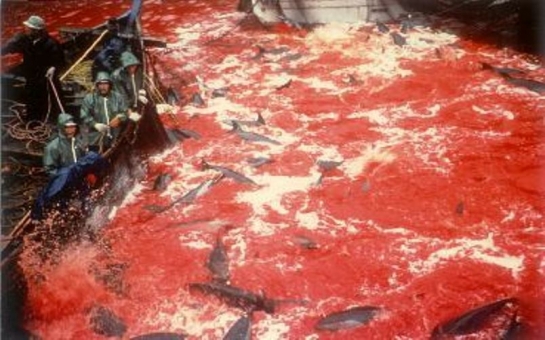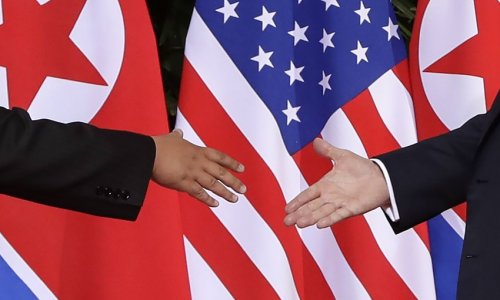Dolphins are dying to entertain us. That's the message coming out of the annual capture and mass slaughter of dolphins near the small Japanese village of Taiji, which began this month.
Every year between September and March, more than 2,000 dolphins are slaughtered in these so-called “drive hunts”. During a typical drive hunt, boats chase pods of dolphins while crew members clang metal poles together underwater, creating a cacophonous wall of sound that confuses and alarms the animals.
Using nets, the boats corral the disoriented animals into a “killing cove”. Calves who are unable to keep up and become separated from their mothers are left to die of starvation or be eaten by sharks.
A government ban on stabbing the dolphins to death with knives and spears has resulted in an officially sanctioned killing method requiring that a metal pin be driven into the cervical region (the “neck”) of the dolphin, severing each animal's brainstem.
In theory, this new rule should result in a quicker death, but in practice, hunters continue to wade through the bloody water wielding their spears among the fully conscious, thrashing, squealing dolphins, who are slowly and painfully executed alongside their families and friends.
In an attempt to prevent photos of the cove stained red with the blood of dying dolphins, hunters have started inserting wooden wedges into the animals' wounds to minimise the outpouring of blood. The authors of an article published last year in the respected Journal of Applied Animal Welfare Science tell us what I'm sure you're already thinking: that inserting a wooden wedge into a bloody wound prolongs the length of time it takes to die and prevents quick insensibility through blood loss.
(independent.co.uk)
Bakudaily.Az











